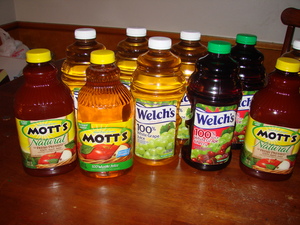A major step was taken in the fight against coupon fraud this week with the arrests of three women in Phoenix. (see one of the news stories at: http://www.abc15.com/dpp/news/region_phoenix_metro/central_phoenix/phoenix-police-other-officials-involved-in-coupon-counterfeit-case-operation-super-coupon)
Make no mistake about it. It can be very easy to be offered a counterfeit coupon. Our team reviews many thousands of coupons a year and we absolutely come across counterfeits which we discard from our database. Counterfeits can be very difficult to tell from the real thing. With advances in desktop publishing and the availability of low cost, high quality printing equipment, you may think you are paying for “the service” of someone doing the clipping for you, when in fact, you are paying someone to print counterfeits from their home computer leaving you with the possibility of embarrassment or worse at the checkout.
In the enthusiasm for getting the best deal, please don’t let your guard down and simply accept that any coupon you find on the Internet is authentic. Retailers and / or manufacturers will prosecute those who commit fraud – and there’s no need to get in trouble if you exercise some caution by recognizing some warning flags.
Here is a list of tips on avoiding coupon fraud and how to identify bogus coupons:
1. Coupons for sale on eBay from individual sellers. (They will claim they are only charging for the clipping and postage). I’ve just heard of too many problems with counterfeits being passed off to unsuspecting shoppers. You can accumulate many coupon inserts by other methods such as buying extra copies of the paper at the newsstand – or checking with your local paper to see if they will give you a discount for multiple subscriptions of the Sunday paper. There is a clear return on investment if you are actively using coupons. If you don’t want to buy extra copies, have friends, neighbors, or co-workers hold on to their coupons for you. With the right system, you will get plenty of coupons for your family.
2. The offer is too good to be true. Offers giving away unbelievable products or with incredibly high face values (usually anything over $5) are suspect.
3. Printed from an unrelated site that has nothing to do with a large coupon printing company (Coupons.com, SmartSource) – or manufacturer.
4. All you have is a pdf (Adobe Acrobat) file Distributed via email.
5. Free stuff. Real coupons like this do exist, but are rare.
6. Long expiration dates. Most coupons allow 3 months before expiring. Coupons with a long or no expiration period may be fraudulent.
7. Value inconsistencies. Counterfeiters often alter real coupons, but may not change all values correctly.
8. Bar code issues. A missing bar code or a code that just won’t scan is suspicious.
9. Unusual legal copy. Fraudsters may forget the legal copy or include nonsense words.
10. Typos. While marketers can and do make mistakes, counterfeiters are very prone to typos such as misspelling the brand name.
For more information:
The Coupon Information Corporation (www.cents-off.com) is a watchdog group comprised of manufacturers dedicated to fighting fraud and misredemption. When people cheat the system, it hurts us all. SavingsAngel.com is a firm advocate for ethics in couponing – and we personally review every coupon we index to protect our members. You can save many hundreds of dollars each month while playing by the rules.



